Bitcoin Becomes Legal Tender in El Salvador
Commonly referred to as “Bitcoin Day” or “Bitcoin Freedom Day”, September 7th, 2021 is the day El Salvador became the very first country to accept Bitcoin as legal tender. Anyone in El Salvador can now pay for goods, services, and even their taxes with Bitcoin.
This came after the initial “Bitcoin Law” legislature was passed by the Legislative Assembly of El Salvador on June 9th, 2021. The final votes totaled 62 members favoring the bill, 19 opposing, and 3 members abstaining.
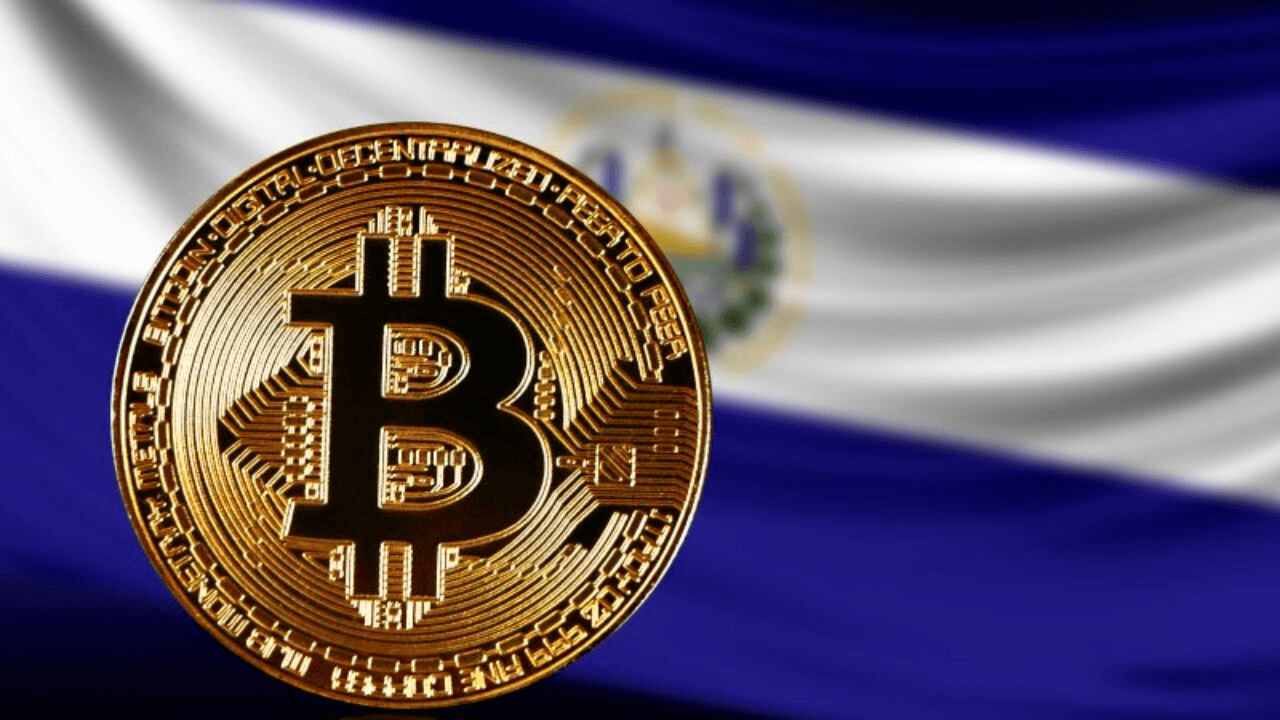
Why Did El Salvador Make the Switch to Bitcoin?
President Nayib Bukele believes this bold move will strengthen his country’s economy in more ways than one. Here are a few of the major areas where growth is expected:
Foreign Investment
Bukele proposed the move towards Bitcoin’s acceptance would encourage tourists and investors to spend cryptocurrencies in his country.
Increased Salvadoran Involvement
Before “Bitcoin Freedom Day”, approximately 70% of the population of El Salvador didn’t have bank accounts. With Bitcoin’s integration, President Bukele believes the recent adoption of BTC will boost the economy as citizens are more likely to set up a bank account.
Mining Bitcoin with Renewable Energy
The government of El Salvador has has also spoken of big plans to use El Salvador’s natural volcanoes, like Conchagua and Tecapa, as sustainable power sources to mine Bitcoin using geothermal energy.

Simplified Remittance Payments
El Salvador depends on remittances from citizens working abroad in Central and South America as well as in the United States.
In 2020, around 1 out of every 4 El Salvadoran citizens were living in the United States. That year, foreign remittances amounted to over $5.9 Billion making up 23% of El Salvador’s GDP at the time, making it one of the highest remittance to GDP ratios in the world.
After all the claims of ease of use and low cost remittance payments using Bitcoin, a report published by Fortune in January of 2022 saw fees on remittances made in BTC were several times greater than the remittance system El Salvador was using before the Bitcoin Law.
What Does Legal Tender Mean?
Technically speaking, when a currency gains legal tender status, as is the case for Bitcoin, it must be accepted if offered to pay a debt. For general transactions however, businesses can refuse the currency. You’ve probably familiar with some stores or businesses who only accept payments in cash or credit card.
Many modern countries already view Bitcoin as a legitimate convertible currency but simply do not yet accept it as legal tender. The United States, for example, considers Bitcoin and crypto profits a form capital gains and are taxed as such. It goes to show that just because it’s viewed as a very real currency doesn’t mean you can use it to pay for gas and groceries without first converting it to USD.
According to the US Treasury, “there is no federal statute mandating that a private business, person, or organization must accept a currency as payment for goods or services. Private businesses are free to develop their own policies on accepted currencies or forms of a currency (cash, credit card, checks, etc.) unless there is a state law which says otherwise.”
Upon announcing the adoption of BTC as legal tender, many Salvadoran business owners began protesting the fact they were now going to be required by law to accept BTC. President Nayib Bukele published a tweet saying how the only mandatory acceptance of Bitcoin was for charities. Since then, salaries and pensions have also continued to be paid in USD, according to President Bukele.
En fin, solo benéficos, pero el Gobierno no va a obligar a nadie a recibirlos.
— Nayib Bukele (@nayibbukele) August 23, 2021
Si alguien quiere seguir cargando efectivo, no recibir bono de entrada, no ganarse a los clientes que tengan #bitcoin, no crecer su negocio y pagar comisión por las remesas, puede seguirlo haciendo 🤷🏻♂️
Bukele clarified that the use of Bitcoin will be optional, nobody is being forced to accept Bitcoin if they don’t want it. If someone wants to pay in BTC, business owners retain the right to deny service.
The Path Towards Bitcoin Acceptance
After Bitcoin became legal tender, President Bukele announced that citizens who download their very own Chivo crypto wallet would receive a special bonus of $30 worth of Bitcoin. Non-citizens were also offered a unique incentive:
Anybody who invests at least 3 BTC in El Salvador would become eligible for permanent residency.
To show support for this massive milestone for Bitcoin, Michael Saylor encouraged his followers to join in on the fun and buy $30 worth of BTC. Based on the results of Saylor’s tweet, 83.6% of the 90,470 twitter users who voted in the twitter poll agreed to purchase $30 worth of the crypto.
On September 7, El Salvador will officially begin using #Bitcoin as its national currency alongside the U.S. dollar. Every cyber hornet 🐝 I know is planning to buy $30 in BTC tomorrow in solidarity with the people of #ElSalvador and their leader @nayibbukele. Will you join us?
— Michael Saylor⚡️ (@saylor) September 6, 2021
Salvadorans were given the option to use Chivo (Salvadoran slang used to describe something as “cool”) to remotely send and receive Bitcoin and USD. The wallet also makes converting between these currencies a seamless process and allows users to easily make cash deposits and withdrawals from Bitcoin ATMs.
Athena Bitcoin, a Bitcoin ATM manufacturer, pledged to invest over $1 million USD to produce and install over 1,500 of their ATMs across El Salvador. Athena plans to set up more machines in areas where demand is higher and in communities known to receive a high volume of remittances.
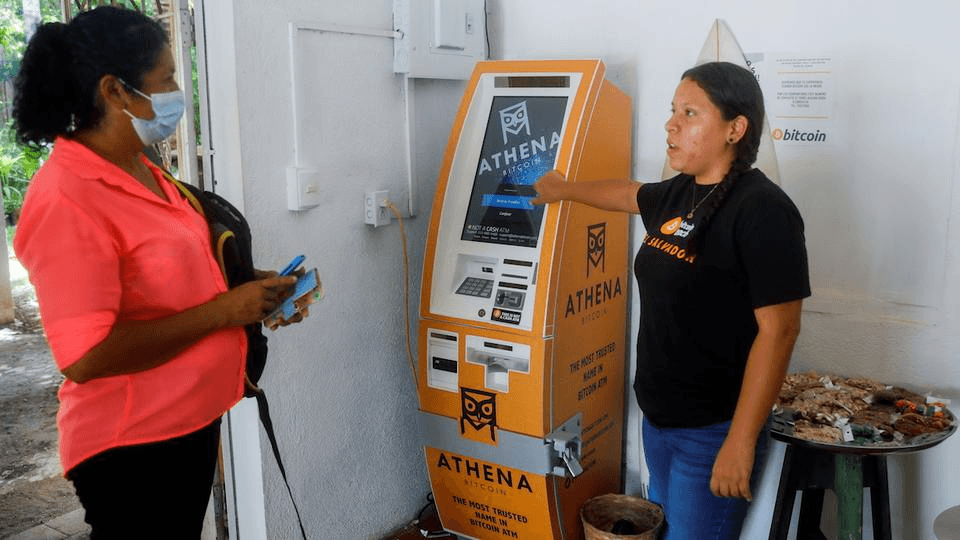
The digital wallet is not limited to citizens of El Salvador. Anybody can download Chivo Wallet on Apple and Android devices. It only became the recommended wallet of El Salvador when it was released in October of 2021, about a month after Bitcoin Freedom Day.
Upon its initial launch users had trouble while purchasing and transferring their Bitcoin, which are arguably the most important features of a crypto wallet. Bitso, the main service provider for Chivo Wallet, temporarily pulled the app to fix the problems and fine tune its servers to meet the demands of such a huge influx of users.
Because of these issues and many others, 20% of Salvadorans who downloaded Chivo didn’t even use their $30 sign-up bonus. 61% of those who signed-up immediately stopped using the Chivo as soon as they received their bonus, according to the US National Bureau of Economic Research. In fact, only 0.0001% of the transactions on Chivo involved BTC during the first a week after its unveiling.
The Trials and Tribulations of Making Bitcoin Legal Tender
Being the very first country in the world to accept Bitcoin as legal tender, El Salvador has become somewhat of a national experiment to see how an economy handles such a unique and naturally volatile currency. President Nayib Bukele has come out and said it’s not without it’s challenges. He has taken criticism due to Bitcoin’s high volatility and environmental impact as well as the lack of transparency surrounding his country’s economic policies.
Como toda innovación, el proceso del #Bitcoin en El Salvador tiene una curva de aprendizaje. Todo camino hacia el futuro es así y no se logrará todo en un día, ni en un mes.
— Nayib Bukele (@nayibbukele) September 6, 2021
Pero debemos romper los paradigmas del pasado. El Salvador tiene derecho a avanzar hacia el primer mundo.
The World Bank and the IMF (International Monetary Fund) have openly stated El Salvador will likely become a prime destination for money laundering schemes and criminal financial activity such as tax evasion. Many financial experts see this as a massive blunder for the central American country.
The IMF even sent a warning to El Salvador back in January 2022 to stop using Bitcoin as legal tender due to the potential it might ruin the country’s financial stability, integrity, and privacy. The IMF then threatened to pull a previously promised loan of $1.3 billion in financial aid, which they have yet to follow through on.
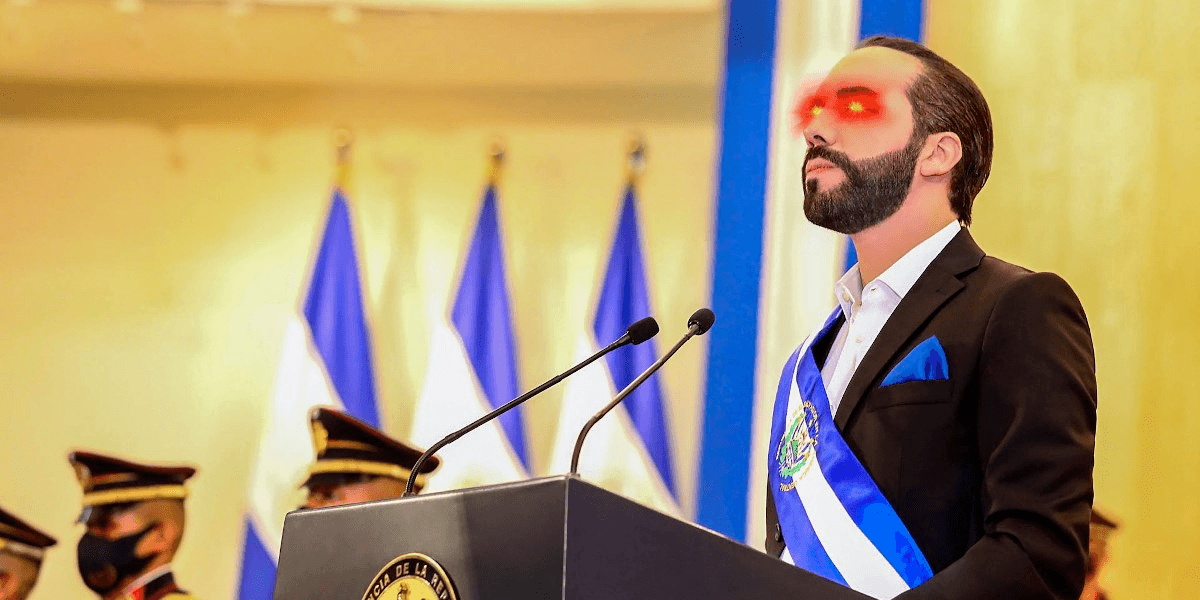
The opposition to Bitcoin’s move to legal tender status isn’t limited to the World Bank and IMF, it also comes to include El Salvador’s citizens. Unfortunately, cryptocurrency was not widely accepted by the general public of El Salvador, due, in part, to the sheer lack of digital literacy since only about one-third of the country’s population uses the internet. To further complicate matters, 40% of the population currently lives below the poverty line.
The University Institute of Public Opinion in El Salvador conducted a local survey just before Bitcoin Day. You might be shocked by some of these results…
- 70% of the population either disagreed or strongly disagreed with their government enacting the Bitcoin Law, believing it never should have been passed.
- 20.6% of those surveyed didn’t even know what bitcoin was at all.
- Only 4.8% could correctly define Bitcoin as a cryptocurrency at the time the study was conducted.
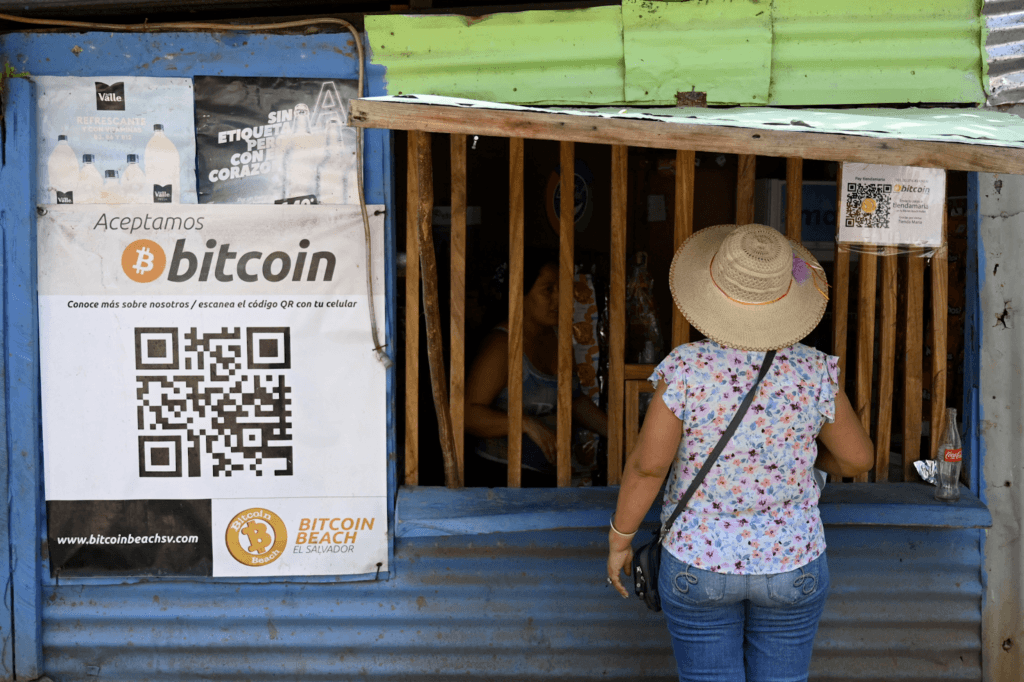
El Salvador’s Chamber of Commerce found 14% of businesses began accepting Bitcoin as a form of payment between September of 2021 and July of 2022.
The Beginning of a New Age
Many believe Bitcoin Freedom Day will historically mark the beginning of a new era for El Salvador and the world as we head towards widespread Bitcoin acceptance as a viable digital currency.
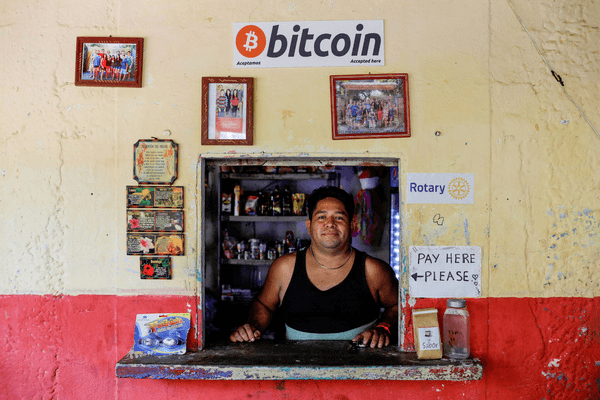
Right now we are already seeing the start of a domino effect following El Salvador’s acceptance of BTC as legal tender. Now that one country has accepted Bitcoin as legal tender, Panama and a handful of other countries have already begun discussing accepting Bitcoin as legal tender themselves and creating tax incentives for Bitcoin-related businesses.
